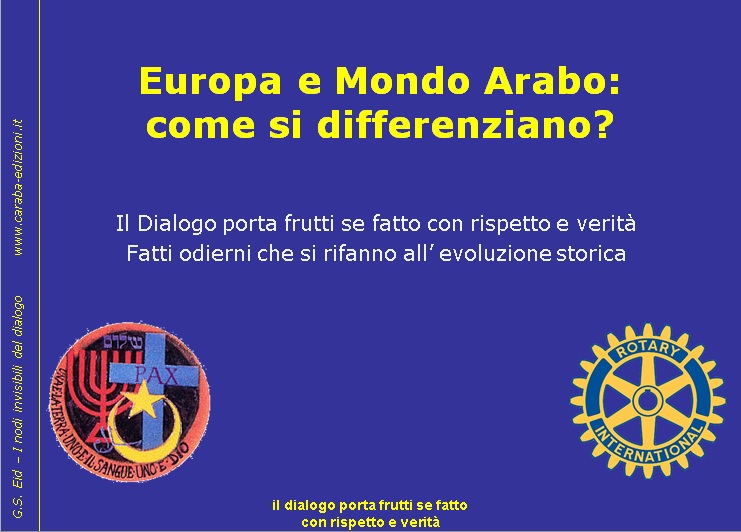Note che accompagnano la conferenza in Interclub del R.C Milano Sud-Est e R.C. Milano Cà Granda del Distretto 2040.
Informazioni tratte dal libro dello stesso autore, Cristiani e musulmani verso il 2000 una convivenza possibile, Figlie di San Paolo, Milano, 1995 recensito da Monsignore Gianfranco Ravasi.
Introduzione:
L’instabilità del Medio Oriente accompagnata dall’odio diffuso contro l’Occidente sono risultati i principali alimenti del terrorismo islamico, fonte di pericolo non soltanto per gli USA ma per tutto l’Occidente e per gli stessi governi dell’area mediterranea. Una popolazione araba frustrata nelle sue aspirazioni in termini di educazione, assistenza sociale, sanitaria, prosperità, sarebbe facile preda del disordine politico, continuando a rappresentare una minaccia per la stabilità della regione e del mondo. Inoltre, la presenza maggioritaria di terroristi di nazionalità saudita ha scosso la fiducia degli USA verso l’alleato di ferro, principale fornitore di greggio ma pur sempre finanziatore dei movimenti islamici avversi al modo di vivere occidentale.
